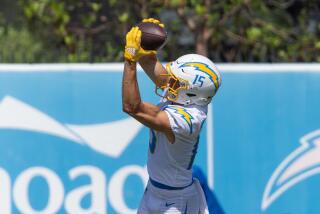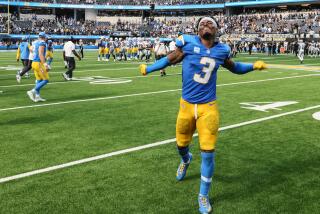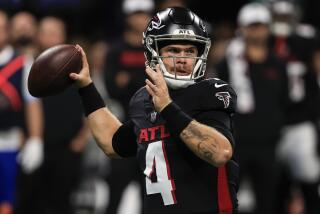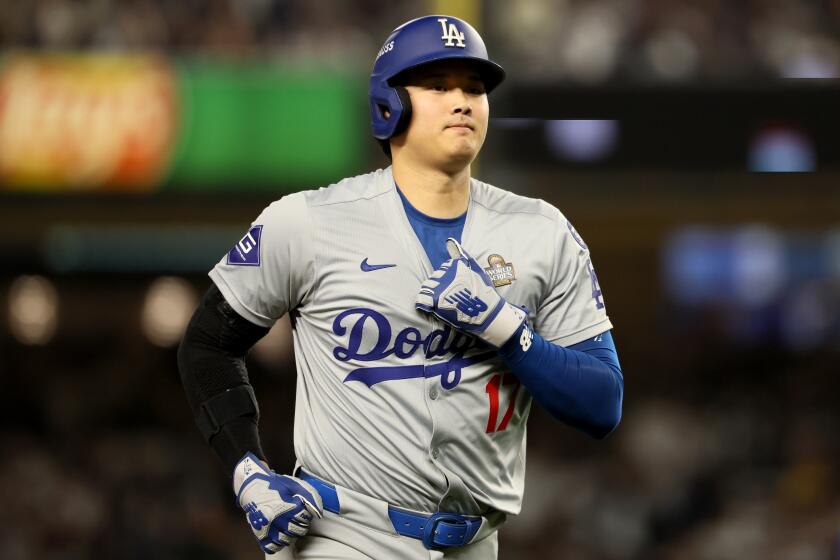Chargers’ task to win over L.A. is like climbing ‘Mt. Everest’
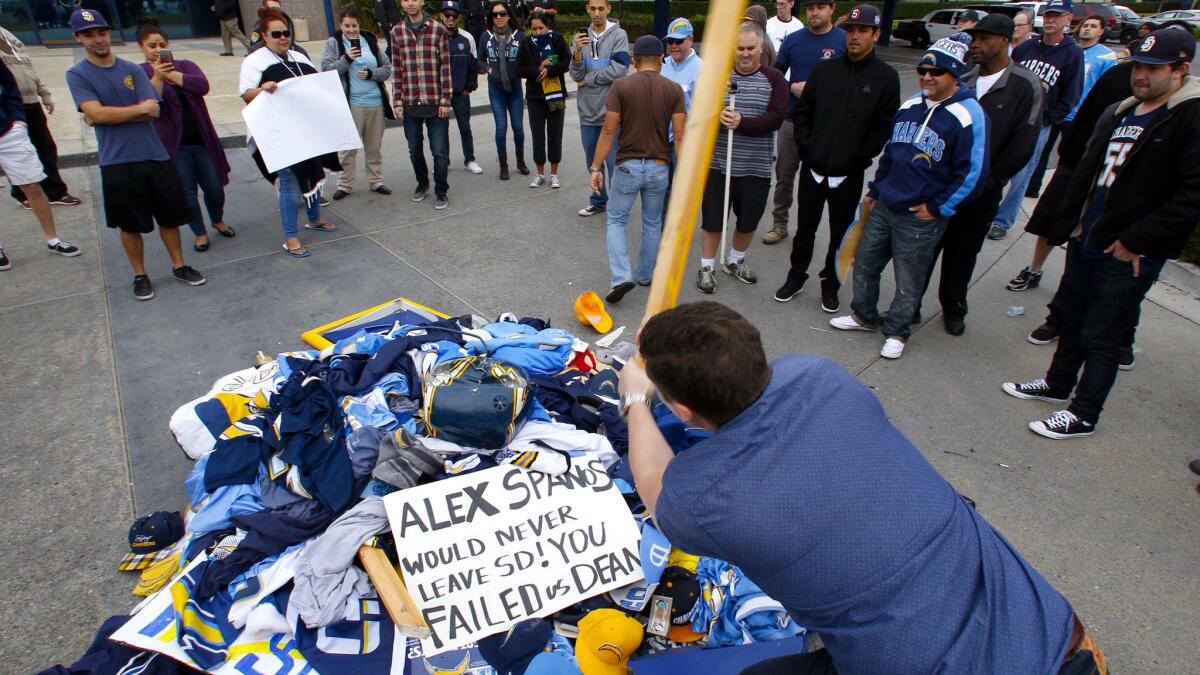
This is a Dodgers town for baseball, a Lakers town for basketball. So whose will it be in football?
The Rams have a rich history here and a one-year head start on the Chargers in their return.
The Chargers might prosper, or they could sink into mediocrity and invisibility, swallowed up into an enormous market that has little patience for losers and endless alternatives for fun.
It is challenging enough that the Chargers will be the second football team in town, and sharing a stadium with the Rams.
The Angels were born here half a century ago, never left, won a World Series, employ Mike Trout, the best player in baseball, and still operate in the shadow of the Dodgers. The Clippers preceded the Chargers by three decades in moving from San Diego to Los Angeles; the Lakers had Magic and Showtime and for a long time made the Clippers all but disappear. The Rams and a graying chunk of their fan base grew up here together, when the team played in Southern California from 1946 to 1994.
And the Chargers have made a hard task even more difficult. When they announced their move to Los Angeles on Thursday, they did so having given the Rams the lead in reaching the hearts and wallets of the current generation of Southland sports fans.
“It’s the difference between climbing Mt. Everest and Mt. Shasta,” said Andy Dolich, a former top executive with the Oakland Athletics, San Francisco 49ers and Golden State Warriors. “They’re climbing Mt. Everest.”
Chargers owner Dean Spanos acknowledged the challenge during an interview at The Times’ offices on Thursday.
“There is a tremendous amount of competition,” he said. “We believe we have to fight to gain the respect of the fans and the season-ticket holders and the people we’re doing business with.
“We have to do that by winning on the field. Secondly, and I think sometimes even more importantly, we have to ingratiate ourselves into the community and be a part of Los Angeles. Not just the Spanos family, but our players, our entire organization. ...
“None of us are expecting a thing where you just flip a switch and this is all going to happen overnight. This is going to be a work in progress.”
The second-team label should not be taken lightly, because it is rarely removed. The Cubs are kings of baseball in Chicago, so much so that ESPN forgot the other team in October, in a televised list of Chicago’s championship teams in the past half-century. The Bears of the NFL were there, and the Bulls of the NBA, and the Blackhawks of the NHL.
Missing: the other baseball team in town, the 2005 World Series champion White Sox, who have called Chicago home since 1901.
The Chargers debuted in Los Angeles in 1960 but have called San Diego home since 1961. “I can’t think of the Chargers without thinking of San Diego,” said Lew Wolff, a Los Angeles resident and former managing partner of the Oakland Athletics.
The Chargers are not bringing a winning team to Los Angeles. Neither did the Clippers.
When the Clippers arrived in 1984, they sold their prime season tickets to basketball fans who didn’t have access to the best seats at Lakers games, said Alan Rothenberg, then the Clippers’ president and now chairman of Santa Monica-based Premier Partnerships.
“And a lot of it, quite honestly, was trading off the popularity of the visiting teams,” Rothenberg said.

Lindsey Thiry and Nathan Fenno discuss the Chargers’ announcement they are moving to Los Angeles.
Rothenberg said the Chargers would have one advantage the Clippers did not: a shiny new facility under construction, rather than an indefinite stay in an already outdated and since-demolished Sports Arena. He also said the Chargers need to focus on L.A. beyond selling tickets.
“The Rams, even though on the field they did not distinguish themselves, they’ve done a great job of integrating into the L.A. community,” Rothenberg said.
The Rams employ Johnathan Franklin, a former local high school and UCLA football star, in their community outreach office, and the organization donated footballs, mouthpieces, jerseys, polo shirts and soft shell helmets to 67 high school football teams in the Los Angeles Unified School District.
Said Rothenberg: “The Chargers are going to have to play catch-up on that.”
However, being a good corporate citizen won’t be enough, said Marc Ganis, president of Chicago-based consulting firm Sportscorp Ltd.
Ganis called winning “the silver bullet.” The Chargers finished in last place in their division in each of the last two years, but in the 11 seasons before that they had just one losing season.
In San Diego, Ganis said, fielding a competitive team might have been enough.
“In Los Angeles, you’ve got to compete for championships,” he said. “It’s not just about a very good team. It’s about a very good team competing for championships, with superstars.”
The Chargers have a behind-the-scenes owner in Dean Spanos and a mild-mannered quarterback in Philip Rivers. Neither evokes the flamboyance or magnetism of, say, Dallas Cowboys owner Jerry Jones, Lakers legend Magic Johnson or even Dodgers outfielder Yasiel Puig.
Wolff said he has no doubt that two teams can flourish in Los Angeles. For starters, the “second team” label won’t stop the Chargers from increasing the worth of their franchise the second their moving vans hit L.A.
The Chargers can command more for suites and sponsorships in a larger market, with a larger audience. And, in the event the Spanos family were to sell the team, it surely has not escaped them that the Padres and Dodgers each were sold in 2012 — the Padres for $600 million, the Dodgers for $2 billion.
But the Chargers will have to start from scratch — losers on the field and vanilla off of it, with a fan base reared to chant “Beat L.A.” and despise any team with L.A. in its name.
The Chargers have estimated that roughly 25% of their fan base hails from the L.A. area — including Orange County — but there’s no way of telling how many will make the long freeway drive north for games or otherwise continue to support and follow the team.
“They’re going to have to establish a totally new fan base,” Wolff said.
Times staff writers Eric Sondheimer and John Cherwa contributed to this report.
Follow Bill Shaikin on Twitter @BillShaikin
More to Read
Go beyond the scoreboard
Get the latest on L.A.'s teams in the daily Sports Report newsletter.
You may occasionally receive promotional content from the Los Angeles Times.

